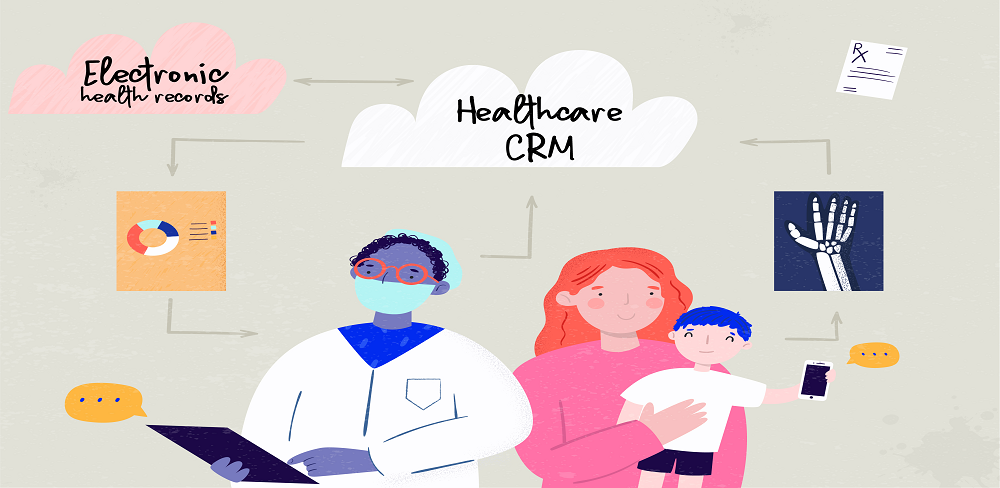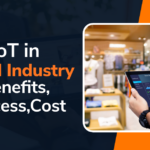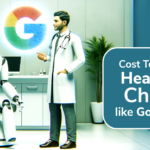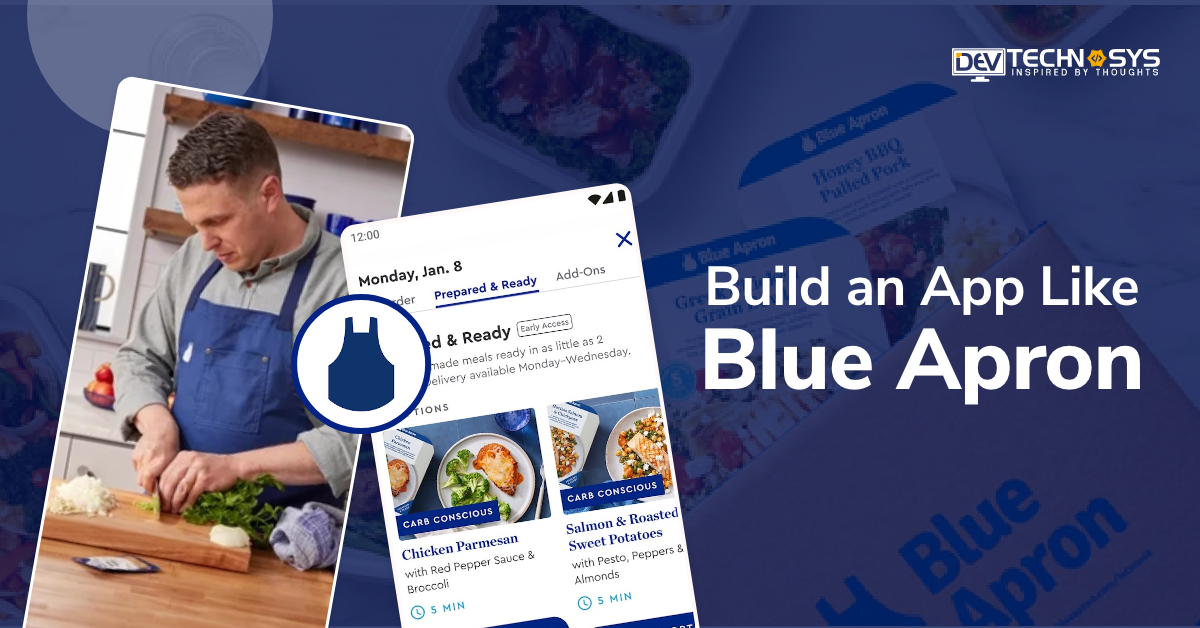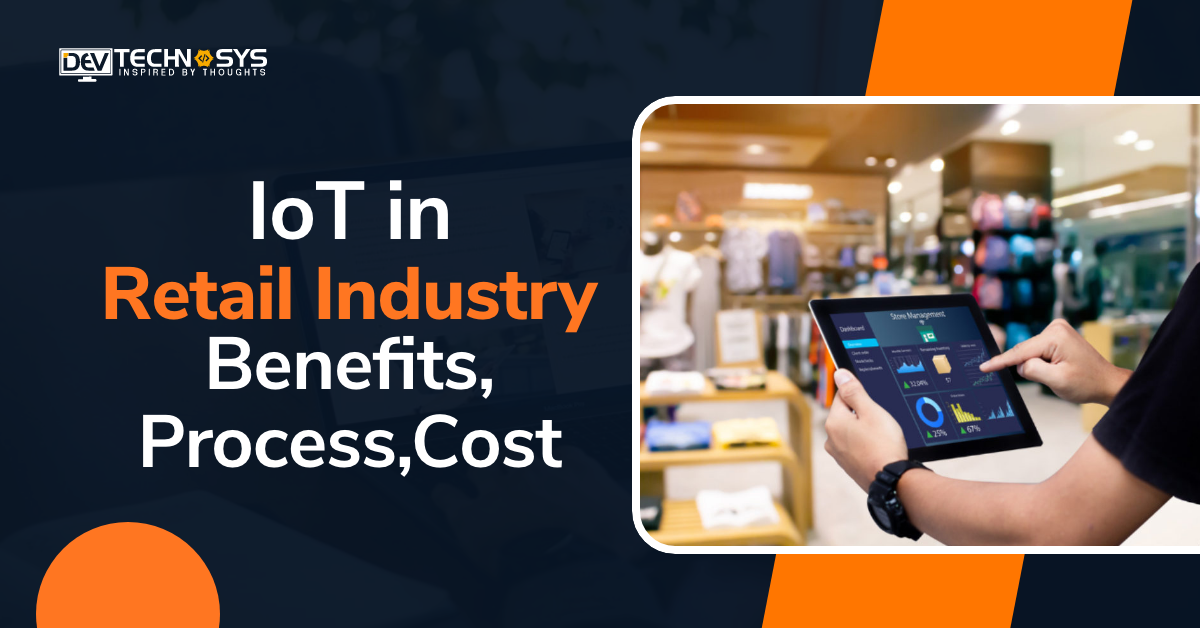With the advancement in technology and digital solutions, it is essential to utilize customer relationship management or healthcare CRM software the most. It will act as a ladder to the success of any business or mobile application development company. The majority of businesses depend on one or the other form of CRM solutions.
These solutions or software help in enhancing essential business processes and streamline the work. However, it is difficult to find the right CRM solution for every company due to the availability of plenty of options available in the market.
If the business processes are improved with the help of powerful CRM software, it can result in elevated effectiveness of business as well as increased efficiency. Therefore, it is always an intelligent choice to invest time to make a fully functioning CRM solution that fits the company based.
Table of Contents
Kinds Of CRM Software
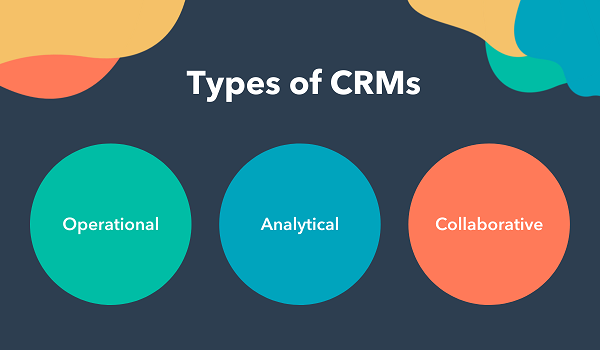
The term CRM software is like an umbrella in the world of the mobile app development company. There are plenty of software solutions that come under the same. These solutions do a variety of jobs such as supporting business operations, managing business analytics, and including operational CRMs.
There are three kinds of CRM software available in the market namely, operational CRMs, collaborative CRMs, and analytical CRMs. Each type of software has its own set of goals. They have different ways of working when it comes to the enhancement and streamlining of a specific group of business functions. The three types of CRM software have been discussed below:
1. Collaborative
Collaborative CRMs are very specific and only come in use during simplifying and facilitating collaboration. It works especially among bigger businesses that are further divided into several departments and required to hire dedicated developers. Collaborative CRM software does the job of managing communication channels as well as B2C interactions.
This goal is achieved through several tasks. These tasks include recording interactions on different channels consisting of email, chat, audio calls, and more. The data collected from these records and the insights are a great help to businesses. They help the companies to choose the best communication channels and work on feedback provided by the customers.
2. Analytical
The second kind of CRM is the analytical CRM solution. It makes full use of data to help businesses to build trust among customers to effective customer service and support strategies. This software generally collects and stores data for the company, which the IT development company uses to analyze different aspects of its customers. Aspects may include customer behavior, preferences, demographics, and more.
All this information plays a vital role in understanding the customer base effectively. Rather than applying a catch-all strategy and spending millions on customers, the company can take a focused approach. It will result in fast problem solving and visible improvements as far as the customer base is concerned.
3. Operational
Operational CRM comes into use when the company requires to elevate the primary processes of any business and support the ideas. The primary processes include sales, managing customer relations, and more. For a business to bloom to its fullest, there must be a presence of creative marketing strategies, increasing sales as well as extraordinary customer service.
Operational CRMs come into play in this situation. They help the company to achieve its goals using the concept of automation. CRM solutions automate the processes to maximize efficiency. It saves a lot of time as the company’s resources are not wasted on repetitive, tedious tasks, and this monotonous work is replaced by higher-value tasks.
Implementation Of CRM
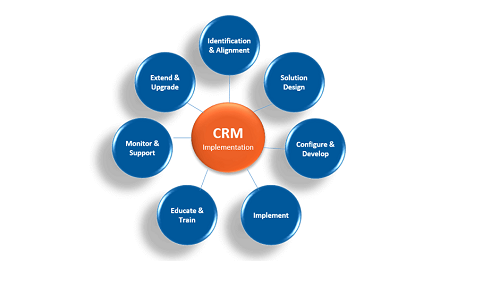
While implementing a CRM, it is essential to know which one will suit the business. It is also significant to consider the implementation process. There are situations where businesses should expect less efficiency during the onboarding and training process.
However, several unique challenges take place while implementing a new CRM tool to the business. The most important factors that are considered while implementing a CRM are as follows:
1. Training
CRM software is required to become a solution that can create some sort of visible and positive change in the organization. Teams should be prepared to hire a mobile app developer and must be trained before getting their hands into the practical implementation.
It will help them understand how businesses and processes will undergo changes and what processes will still be the same. This training helps them to develop a strong framework, and implementation will be easy. It will also support business initiatives.
2. Cost
The software development company must closely monitor the initial and ongoing costs associated with the CRM software. Initial cost generally varies depending on the industry as well as the software a company chooses. It also depends on the payment model it uses.
On the other hand, ongoing costs comprise of future enhancements, upcoming upgrades, the amount of time spent during training, and more.
3. Tech Stack
Along with CRM development, there is plenty of other software that a company uses. Implementation of CRM solution will depend on that too.
One must make sure that the chosen CRM solution can integrate with the hardware as well as software of the existing mobile app development company. If the business uses outdated software, there may be problems in making full use of CRM solutions.
4. Partnered or DIY Implementation
The size and scope vary from business to business. In the same way, the implementation can be DIY or partnered. For example, if the size of the business is mid-sized or large, working with the implementation partner will help in leveraging the full power of CRM solutions. They can also guide the employees and systems to work better after the implementation of CRM.
The choice and implementation differ from industry to industry when it comes to CRM solutions. It differs when a web development company needs it and when a real estate company does the same. Like other industries, the healthcare industry is now moving towards using CRM software for the management of various aspects of hospitals and personal clinics.
What Is A Healthcare CRM Software?
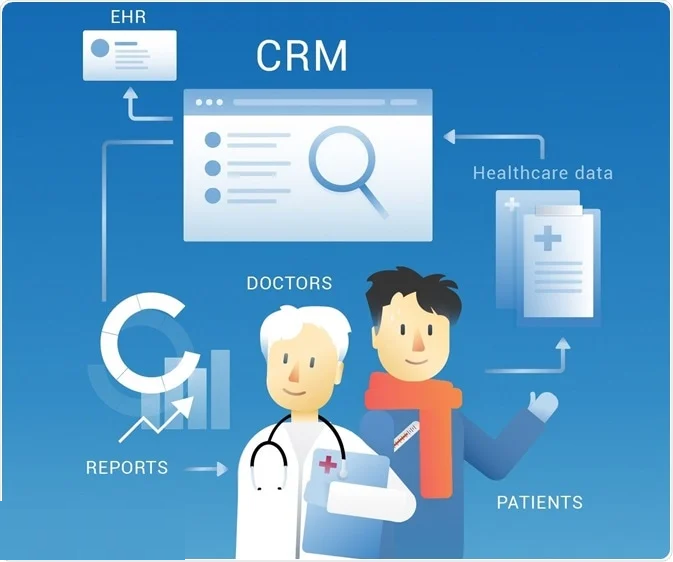
Healthcare CRM software aids a lot of facilities for both medical practitioners and end-users. It provides faster care and diminishes the occurrence of negligence.
CRM software helps in managing hospitals as it keeps a tab on the doctors, ensures the safety of the patients through proper communication and record-keeping, and more. CRM solutions for the healthcare industry have become the need of the hour. That is why businesses are trying to develop apps like Practo. Advancements in healthcare technology will make the process of treatment a lot more seamless and smooth.
A healthcare CRM solution helps to attend appointment requests coming from various channels into a single inbox. These requests also get filtered and labeled for the ease of the hospital staff. As discussed above, just like CRM solutions help in the management of businesses and improve their efficiency, it does the same work in the healthcare industry by channeling the path for patients and doctors.
How To Develop A Healthcare App- Modules, Features, and Cost?
Features of Healthcare CRM Software Solutions
For most parts, healthcare CRM looks exactly like a normal CRM. It just has some special healthcare features and functions. That is why most of the features used to develop a mobile app that you will see in this type of CRM software will be common as in other CRM software.
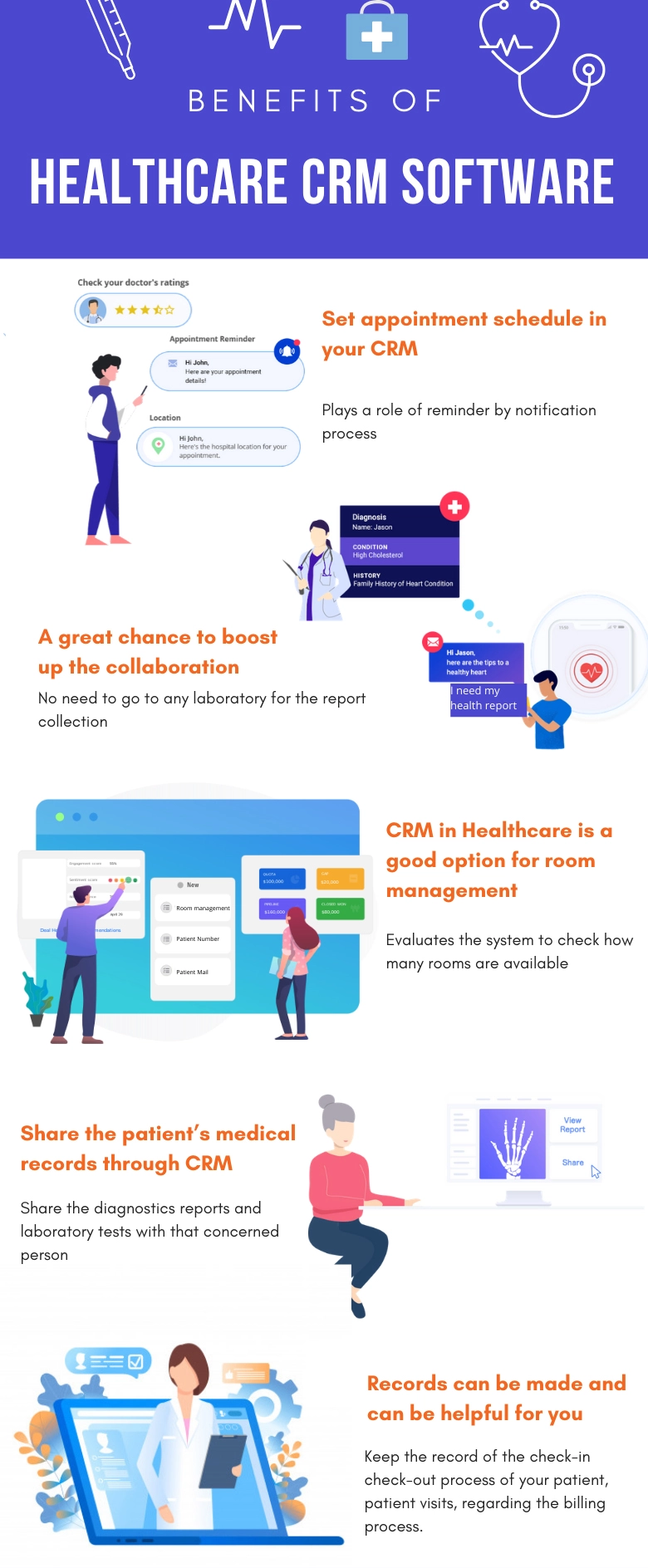
Two types of CRM are used in the healthcare industry by healthcare app developers. One is where the organizations can stay connected to the patients, and the other one is where there can be a connection between general and specialized practices.
Now, the basic features are the same, but there can be some differences according to the type of app you want to develop. Let’s have a look at some of the key features of Healthcare CRM software solutions:
1. Patient Engagement
If you are in healthcare management, you can’t avoid engagement with the patients. Moreover, it is the basics that you have to do. Hence, patient management is the feature that must be there in every healthcare app development or healthcare CRM as everything starts with the patients.
They are the chief target audience of these kinds of software. Every healthcare company depends on the patients for most of their business. If they know how they can effectively engage with their patients, half of their work will already be done. Engagement and management of patients and their records can be easily done with the help of this type of healthcare CRM software. Hence, it is essential to have a patient engagement feature in the software.
2. Consistent Compliance
It is significant to carry out compliance in the healthcare industry. If we look at all the regulations, HIPAA is one of the strictest out there. That is why there should be a feature that can handle this compliance. This compliance handling during the healthcare application development will make sure that all the documents of the patients present on the application are safe.
There is a great amount of sensitive data on this type of software, and it is the responsibility of the healthcare organization to take care of it. If anything leaks out, it can be a big mistake and can ruin everything for the organization and for the patients who were using this application. It is one of the reasons why this feature should be there in every healthcare CRM software.
3. Communication Tools
The main target of every healthcare organization or doctor on-demand app development is to take care of all the patients connected to them. For this, it is crucial to keep communication smooth. If the patients are unable to communicate with the healthcare organization they are taking treatment from, they might not be able to get all the services that they might need.
These tools will make sure that no patient is left out and that all of them get equal attention. All the features should be available to all the patients. These tools can also hold the chat history, reports, medicines, and more. It will keep things efficient, and the patient will not have to tell everything again and again. They will not have to provide all their details and documents again and again. The prescriptions can be provided directly through these tools. It will help them save paper and allow them to place online orders of medicine that can be bought only after presenting a prescription.
4. Contact Management
In healthcare IT solutions, contacts are the patients. Everything that is done in these apps is for the patients. The contact management feature will allow the organizations to keep different patients into different categories as contacts. These people have information that should be safely stored. These people are the ones who will use the software most as well. That is why the contact management feature is crucial.
It is significant to manage a constant base of patients and for that, the hospitals or any other type of healthcare organization needs management of all the contacts. These contact cards may have information like the name, contact details, demographics, and more. It will further help the organization segment these patients smartly into groups. It can be with the next explained feature which is smart segmentation.
5. Smart Segmentation
Because there will already be so much data on the platform, the application will be able to segment the new patient into a category. It might need some AI to be embedded into the code of telehealth app development. The software will already know if the patient belongs to the orthopedic category or the psychology category, or something else.
It will make it easy for both patients and the app admins. The data will directly be shared with the concerned personnel. The smart segmentation will also check the demographics and the history of the patient to assign him/her to the best possible doctor or health personnel on the software.
6. Practice Management System
This feature is necessary to maintain the operation in a hospital or any other healthcare organization. It is important to manage the practices that go on and hire dedicated developers for the same. With this feature, the organization can maintain the things that have to be done to keep everything in the hospital running smoothly. If there is any problem, it can be resolved at the earliest as all people in the organization will be connected.
This can also be used to automate tasks that don’t require manual help from a person. Automation is one of the things that every organization including the healthcare ones will have to adopt. The reason behind this is time efficiency. When tasks are automated, the organization can focus on other essential tasks that require human attention. It will improve the quality of work as well.
7. EHR And EMR Integration
EHR and EMR integration can help by recording the medical information that is provided by the patients and is on the platform whenever a patient takes an appointment and is diagnosed and has some tests done.
All this information can be stored at EHR and EMR by top healthcare developers, and it will stay in the profile of the patient. This way they won’t have to carry their physical documents every time they visit for a checkup or treatment. It can help patients and doctors in many ways.
The doctor will have all the records of the patients, all their medical history past prescriptions, and tests. It will help them in assessing their situation in a better way.
The patients will also get better treatment and will not have to worry about anything other than their health. They can be assured that all the data is safe in the software, as all medical organizations have to comply with strict rules and regulations.
8. Reporting
Reporting in healthcare IT solutions refers to the creation of reports on different things that help the organization with business strategies/marketing and more stuff. You can track different campaigns and know how each one of them is performing.
It is not only about the campaigns that are giving money but the campaigns that are going for a social change in the healthcare industry. The covid situation has changed a lot of things in the healthcare industry, and things need to be tracked effectively and on time. This is so that if there is a change that needs to be done in the strategy it can be done as fast as possible.
Conclusion
Developing healthcare CRM software from an IT development company is not an easy task, but it is not so tough too. The developers just need to know about some of the special functionalities needed by healthcare organizations. It is necessary so that the patients and doctors get features that make a difference and help them in doing something specific.
This type of software serves a great purpose and is important for all healthcare organizations. Be it for a hospital or a pharma company, they all have to deal with the patients and manage their records. These applications help a lot in that, and they are getting better.

